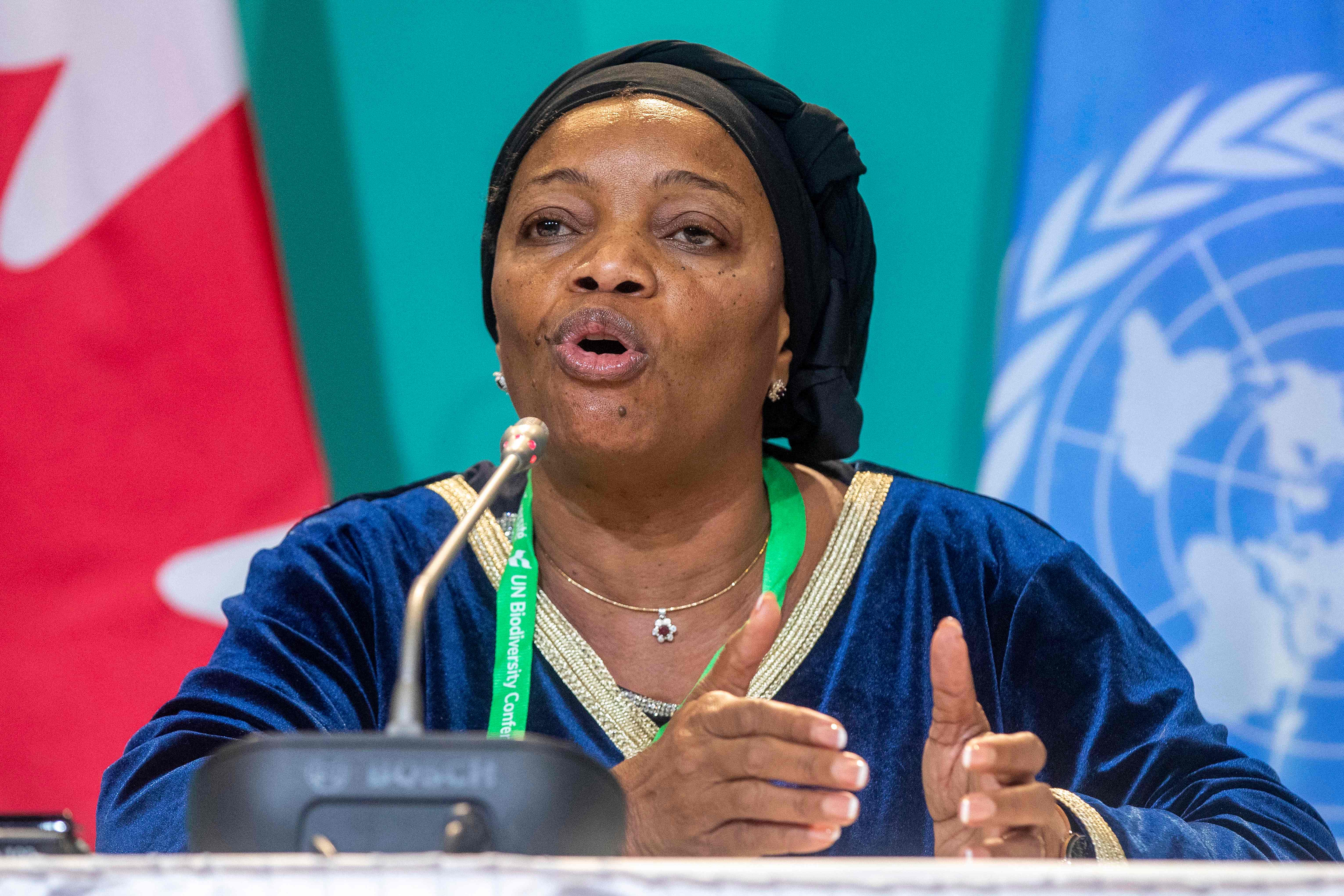
Almost 200 countries have reached a landmark deal to protect nature at the United Nations biodiversity conference early on Monday, pledging to safeguard one-third of the world’s land and oceans.
The global framework comes at the end of two weeks of negotiations held at the 15th Conference of Parties or Cop15 for biodiversity in Montreal, which was jointly chaired by Canada and China.
In a landmark moment, Chinese minister of ecology Huang Runqiu, who was chairing the meeting, brought down the official gavel and declared a pending proposed deal passed in the early morning on Monday.
Ministers and negotiators from almost 200 countries erupted in cheers and applause after finalising the pact, known as the Kunming-Montreal Global Biodiversity Framework, which has laid down a commitment to protect 30 per cent of land and water considered important for biodiversity by 2030.
Currently, only 17 per cent of terrestrial and 10 per cent of marine areas are protected.
This year’s UN biodiversity summit had been regarded as a “last chance” to put nature on a path to recovery, after unprecedented biodiversity losses in recent decades.
A UN-backed study released ahead of the original 2020 date for the conference – before the pandemic hit – showed up to a million species were at risk of extinction, many within decades.
“There has never been a conservation goal globally at this scale,” Brian O’Donnell, the director of the conservation group Campaign for Nature, told reporters.
“This puts us within a chance of safeguarding biodiversity from collapse ... We’re now within the range that scientists think can make a marked difference in biodiversity.”
The draft also calls for raising $200bn by 2030 for biodiversity from a range of sources, and working to phase out or reform subsidies that could provide another $500bn for nature.
Wealthier nations have agreed to increase the funding they provide to poorer countries to at least $20bn annually by 2025, or about double what is currently provided. That number would increase each year to $30bn by 2030.
Earlier estimates have pointed to a need for between $598bn and $824bn annually to reverse the loss of species worldwide.
The final agreement came despite an objection from the Democratic Republic of Congo (DRC), which said it could not back the deal over a lack of adequate funding in the framework. A representative of the delegation from DRC raised concerns about developed nations’ responsibility to fund conservation in developing countries.
“The parties which are developed nations should provide resources to parties which are developing,” the Congolese representative said through a translator.
Over the weekend, Ève Bazaiba, environment minister for the DRC, stressed on the need to “have the means” to achieve the resolutions passed.

The issue of funding has remained a sticking point in the biodiversity negotiations, as in the earlier Cop27 summit, with developing countries staging a walkout last week over the issue.
Countries in Latin America and Africa, home to big swathes of land with unique and at-risk biodiversity, have demanded stronger language on financing as scepticism remains over the commitmnent of wealthier nations, who have failed to meet their climate finance agreements so far.
Several African nations have voiced their dissatisfaction with the final framework, with a representative from Cameroon describing the final falling of the gavel as “a force of [the] hand”.
The representative from Uganda also declared that they did not accept the spirit and the manner in which the agreement was signed off and requested to put on record that it did not support the procedure, claiming fraud.
“The new text is a mixed bag,” Andrew Deutz, director of global policy, institutions and conservation finance for The Nature Conservancy, said.
“It contains some strong signals on finance and biodiversity but it fails to advance beyond the targets of 10 years ago in terms of addressing drivers of biodiversity loss in productive sectors like agriculture, fisheries, and infrastructure and thus still risks [not] being fully transformational.”

The next biodiversity summit, set to be held in 2024, is expected to go beyond the promises made at Montreal with calls for world leaders to envisage a “new relationship” with nature and to ensure flow of money to scale up protection for biodiversity.
“Extinction doesn’t negotiate – the science is clear that we need to protect at least half the Earth by 2030,” Oscar Soria, Campaign Director, Avaaz, said.
“This text is a step forward from where we are, but nature needs a giant leap. Governments should scale up protections, and deliver a clear plan for the full $1 trillion a year that is needed to make this agreement real.”
“It is impossible to solve the climate issue without having a new relationship with nature, and this means the emergence of the leadership at COP15 of developing countries that hold great biodiversity,” said Isabella Teixeira, former Environment Minister of Brazil.
“The entire reform of the development financial system, the so-called Bretton Woods institutions, which will be discussed next year, must deliver not only climate finance, but also biodiversity finance.”
Additional reporting by agencies







